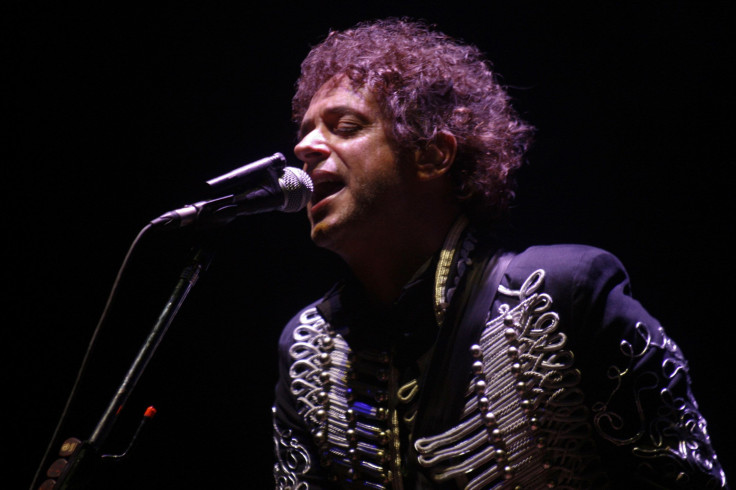
Today is a sad day for music. Gustavo Cerati has died. He was 55. In an official notice on his website and social media accounts, the following message was published: “We communicate that the patient Gustavo Cerati died in the early hours of the morning, as a consequence of a respiratory arrest.” His doctor, Gustavo Barbalace, the Medical Director from the ALCLA Clinic in Buenos Aires, Argentina, signed the message.
Meanwhile, his family asked for respect and consideration during these difficult times. “We will say goodbye to Gustavo starting at 9 p.m. at the Legislatura Porteña, Julio Argentino Roca 595, Ciudad Autónoma de Buenos Aires. We appreciate your respect and consideration with which you always accompany our family,” signed by “Familia Cerati.”
Gustavo Adrián Cerati Clark was born on August 11, 1959 in Buenos Aires, Argenetina. From an early age Cerati showed an interest in music, and he also enjoyed drawing. His first musical influences were groups like The Police (Cerati recorded “Bring on the Night” for a tribute album featuring Andy Summers on guitar and Vinnie Colaiuta on drums), Queen, The Cure, David Bowie (whose chameleonic musical versatility widely inspired Cerati's aesthetics), Brian May, Ritchie Blackmore and Deep Purple.
As he was growing up, he played in different bands including, "Savage," a rock and blues group, "Vozarrón," a fusion band, and a trio called "Triciclo" (tricycle). But it wasn’t until 1982, when he reconnected with Héctor “Zeta” Bosio, a fellow advertising major from the University of Salvador, when they decided that they should get together and form a band. Zeta and Gustavo shared the same musical tastes and had the same aspirations. They wanted to integrate the new wave sound of The Police (which had toured Argentina earlier that year), with their own sound. They also wanted to sing in Spanish.
Charly Alberti was recruited as drummer and they formed Los Estereotipos. After a brief period in which several musicians were tested, they decided to remain as a trio and changed their name to Soda Stereo, which critics say it’s the most important and influential band of Latin rock. They recorded seven studio albums, Soda Stereo (1984), Nada Personal (1985), Signos (1986), Doble Vida (1988), Canción Animal (1990), Dynamo (1992) and Sueño Stereo (1995). Cerati continued to have a very successful solo career, and it was during one of his concerts in Venezuela, that he suffered a stroke that left him in a coma.
The date: May 15, 2010. He was hospitalized in Centro Médico La Trinidad in Caracas under medical surveillance. Three days later, according to the Venezuelan media, Cerati underwent surgery to relieve pressure on his brain due to the ischemic stroke he suffered. On June 7, 2010, he was finally transferred to Argentina and hospitalized in the FLENI Neurological Institute in Buenos Aires. Doctors there began treatment with antibiotics due to a respiratory tract infection.
The following day, doctors reported extensive brain damage due to the stroke. Cerati remained in a coma until he experienced a respiratory arrest that led to his death on the 4th of September 2014. Gustavo Cerati, an Argentine singer-songwriter, composer and producer, was and is considered one of the most important and influential figures of Ibero-American rock and an Argentine rock legend.
Throughout his career, Cerati has been nominated for various Grammy, MTV, and Gardel awards. In 2007, Cerati reunited with Soda Stereo for a reunion tour Me Verás Volver Tour. His death is a physical loss for Latin American rock, but his work will remain a legacy. Gracias totales Gustavo Cerati!
© 2025 Latin Times. All rights reserved. Do not reproduce without permission.





